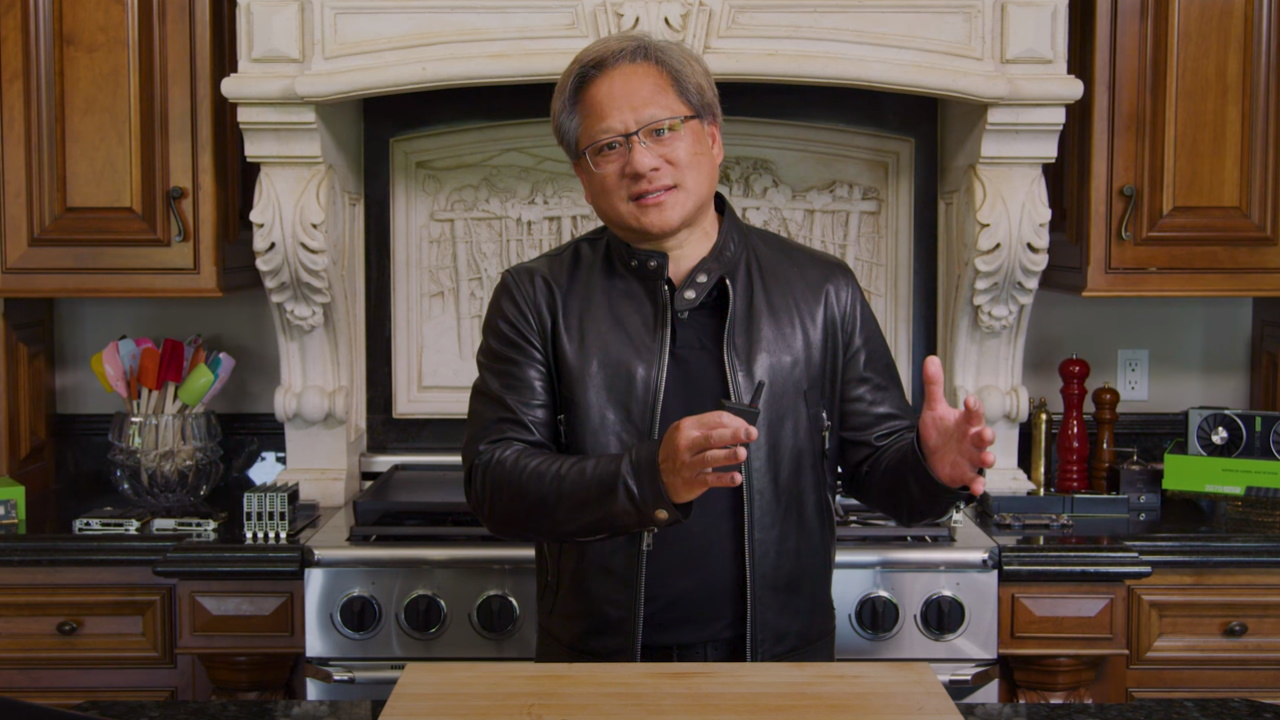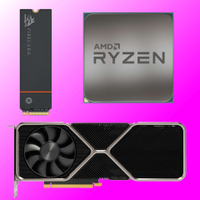Jen-Hsun says Intel's process tech is looking so good Nvidia's open to using its fabs for future GPUs
There's a chance Nvidia's future graphics cards are made by Intel not TSMC, while Intel graphics cards continue to be made by TSMC. What a world.

Nvidia is reportedly open to using Intel Foundry Services to manufacture future GPUs, because it's seen the results of some test chips the company has produced on a future process node and they're apparently looking good.
Jensen was asked on if they qualify with other foundries than TSMC: NVIDIA is open to manufacturer with Intel. They saw the first results from Intels test chips of an upcoming process technology and they are looking good. pic.twitter.com/Ibfy2Cn9GhMay 30, 2023
At a Computex Q&A around the company's keynote at the Taipei trade show, Nvidia CEO, Jen-Hsun Huang, was asked about whether it qualifies chips with any other foundry outside of TSMC. The response was maybe surprising, but the fact that Nvidia is potentially considering using Intel's own fabs to create its GPUs is certainly interesting.
It also bodes well for Intel's upcoming nodes, whether they're used for someone else's chips or whether they're going to be used for Intel's own processors and graphics cards.
If a company the size of Nvidia considers Intel's upcoming production processes fit for purpose then that should mean that it's looking good both from a performance and efficiency point of view, as well as from a cost and yield standpoint. We don't know what that upcoming process referenced here actually is, but it's already got Amazon and Qualcomm signed up to use its Intel 20A process. Whichever node it is, this is a real positive in a world where things haven't been looking great for Intel recently.
Intel's relaunched Foundry Services (IFS) is aimed at rivalling TSMC as a US-based contract semiconductor manufacturer that will fashion silicon into chips using its advanced lithography and packaging technologies. Obviously, for a price. But given that it is trying to rival the likes of TSMC in Taiwan and Samsung in Korea, the likelihood is that Intel may well be offering some tasty discounts to entice customers in.
Whether a lower price and promising early performance would really be tempting enough for Nvidia to actually move its GPU manufacturing away from TSMC again—it used Samsung for its RTX 30-series graphics silicon—is too early to say. With TSMC reportedly upping the prices its charging customers there's certainly a chance.
There's also a chance Jen-Hsun is saying Nvidia's open to using Intel at an event in TSMC's Taiwan backyard to remind the company it has other manufacturing avenues when it comes to renegotiating future contracts.
Keep up to date with the most important stories and the best deals, as picked by the PC Gamer team.
Best CPU for gaming: Top chips from Intel and AMD
Best gaming motherboard: The right boards
Best graphics card: Your perfect pixel-pusher awaits Best SSD for gaming: Get into the game first

Dave has been gaming since the days of Zaxxon and Lady Bug on the Colecovision, and code books for the Commodore Vic 20 (Death Race 2000!). He built his first gaming PC at the tender age of 16, and finally finished bug-fixing the Cyrix-based system around a year later. When he dropped it out of the window. He first started writing for Official PlayStation Magazine and Xbox World many decades ago, then moved onto PC Format full-time, then PC Gamer, TechRadar, and T3 among others. Now he's back, writing about the nightmarish graphics card market, CPUs with more cores than sense, gaming laptops hotter than the sun, and SSDs more capacious than a Cybertruck.


